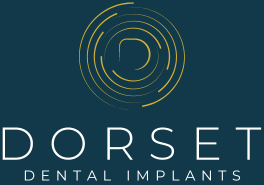Dental Implants Procedure
Dental implants are becoming an increasingly popular treatment for patients.
At Dorset Dental Implants we provide services for implants and other cosmetic dentistry treatments including crowns, bridges and specific treatment for bone regeneration and gum disease.
If you would like to learn more about dental implants, we recommend organising a free consultation at our Dorset based practice.
We treat patients from the surrounding areas including Weymouth, Dorchester, Poole, Bournemouth, Christchurch, Ferndown and Southampton.
We understand that there can be a lot of conflicting information online about dental implants, and so before you take that step, we have put together responses to some of the most commonly asked questions about implants, so you can be as informed as possible before having treatment done.
What are dental implants?
Dental implant surgery involves replacing the tooth root with a very small, metal, screw-like post then replacing the damaged tooth with an artificial one, which functions and appears the same as a natural tooth.
involves replacing the tooth root with a very small, metal, screw-like post then replacing the damaged tooth with an artificial one, which functions and appears the same as a natural tooth.
A dental implant is the titanium screw on the lower half that acts as a natural tooth root.
This bonds with your bone in order to provide greater stability.
Who can have dental implants?
Anyone can have dental implants, although it is important that the patient’s bone tissue has fully developed.
For this reason, so we usually do not use implants on people below age 18.
If the bone tissue has not fully developed, then treatment can cause pain, numbness and tingle in the natural teeth and gums.
How do you need to prepare?
It is our responsibility to carry out an in-depth evaluation prior to your treatment beginning, to ensure that your teeth are in the right condition for implants.
This can include:
- A comprehensive dental exam may consist of taking x-rays and 3D images
- A review of your medical history including medications you take and any orthodontic or alternative conditions we should be aware of
- An in-depth discussion on your dental issues and desires for your smile
- Putting together a treatment plan tailored to suit you
We will administer an anaesthetic prior to treatment in order to control pain levels and make the experience as comfortable for you as possible.
You can request to have sedation on the day, if this is something you are interested in then let the consultant know during your discussion with them.
We strongly advise you to eat a good meal prior to surgery and drink normal fluids as we need your blood sugars to be at a good level and you may not feel like eating for a few hours following surgery.
What happens during the treatment?
Dental implant surgery is usually performed in stages, which allows the mouth time to heal between procedures.
The process of placing an implant involves several steps which may include:
- Removing the damaged tooth
- Jawbone preparation (grafting)
- Placing the dental implant
- Time for bone growth and healing
- Abutment placement
- Artificial tooth placement
The process can take a few months from the consultation period to the placement of the artificial tooth.
Steps may be spread out by your dentist over a few months to allow time for proper healing of the mouth.
What happens after surgery?
It is normal to experience some discomfort after dental surgery.
For implants, this can include:
- Swollen gums and face
- Slightly bruised skin and gums
- Pain at the implant site and minor bleeding
This is not something to worry about, but feel free to contact your dentist if you have any persistent issues.
The majority of dental implants are successful but there are certain things you should avoid in order to care adequately for your implants e.g. smoking, poor oral hygiene, chewing hard items such as ice and hard sweets.
Are you interested in dental implants?
If you think dental implants could be right for you, or simply want to know more, then our highly qualified dentists would be happy to advise you.
We offer free consultation meetings where you can discuss any of your concerns and we can help work out a solution which is best for you.
Get in touch today on 01202 973300.
